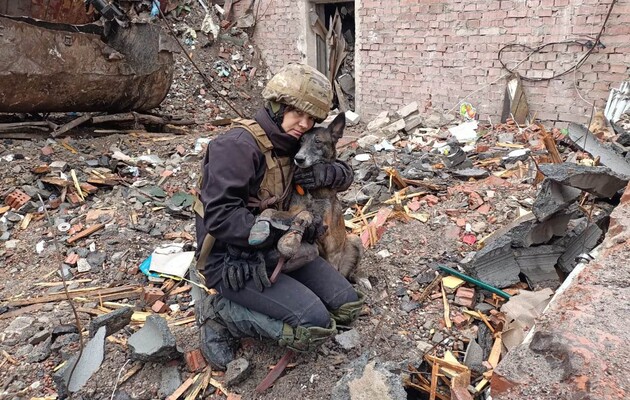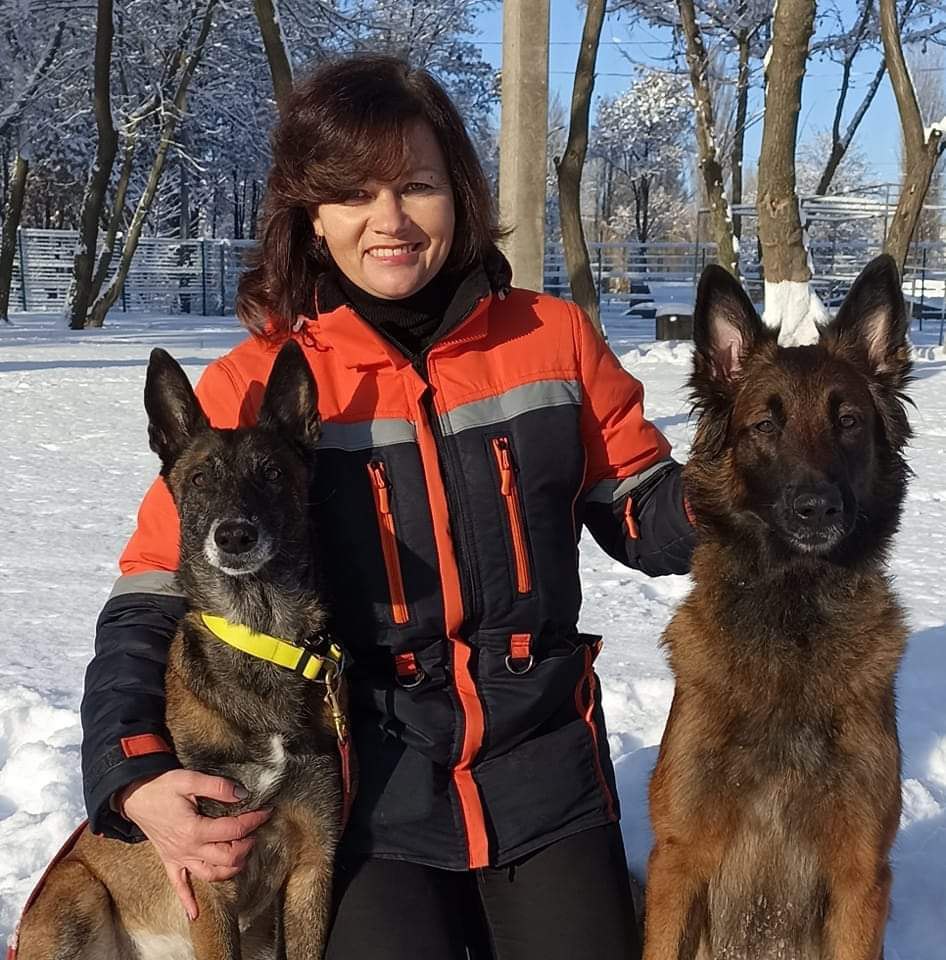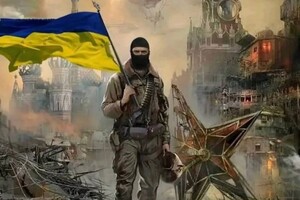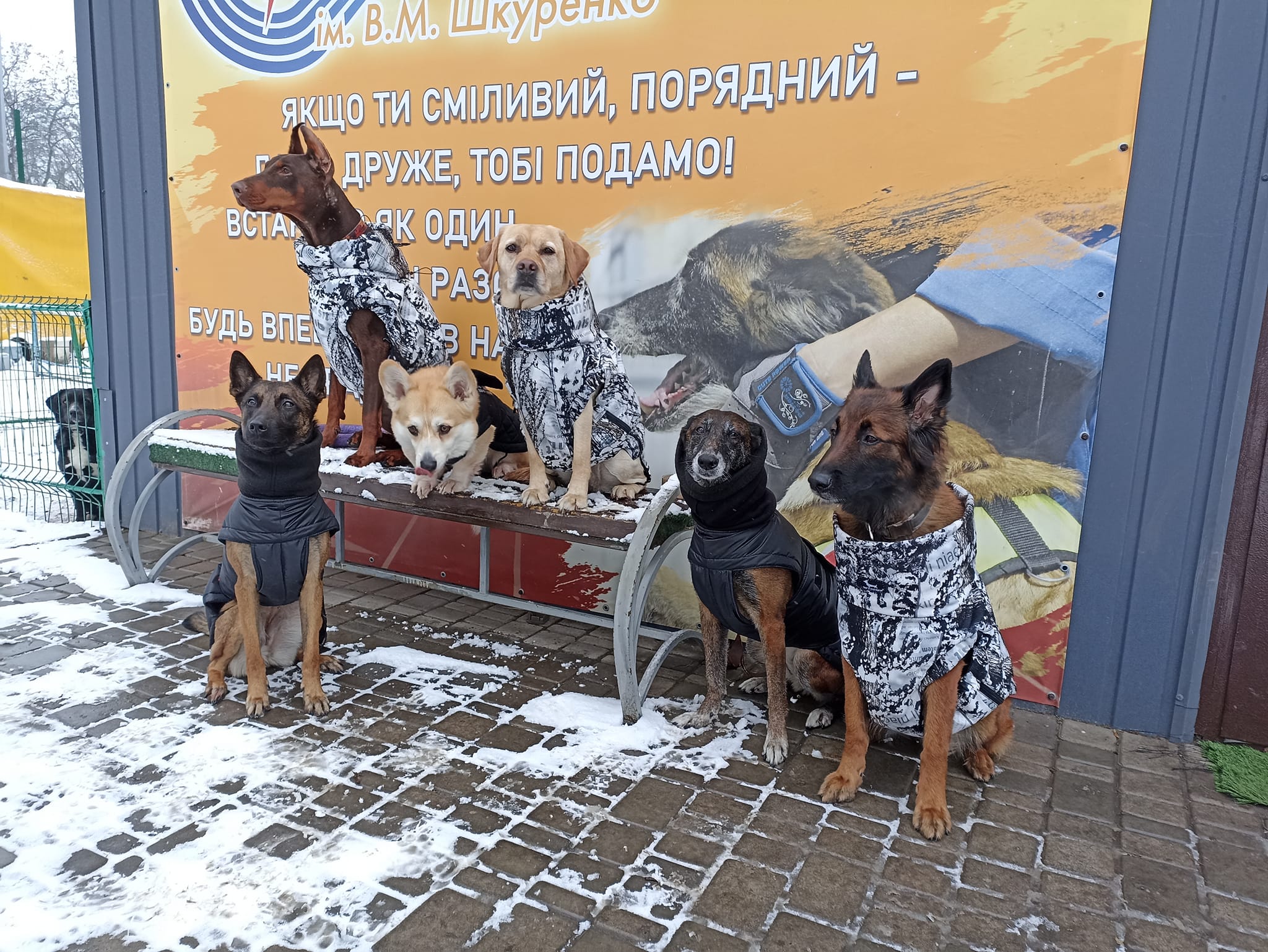Dogs of war: rescue the living, find the dead

On January 14, in the dust and smoke after a rocket attack by Russian aggressors on a nine-story residential building in Dnipro, search dogs appeared on the ruins of the building. They wandered intently through the ruins and periodically glanced at their owners, who nodded understandingly to their dogs in return.
These are special dogs - from the Pavlohrad search and rescue canine unit "Antares". Those who saw them at work were amazed. Sparky, a 10-year-old Belgian shepherd, worked 22 hours without sleep or rest at the ruins in Dnipro.
"We also stood for 22 hours, waiting for her to finish in order to mark the points where the bodies are for the rescuers," said the head of the squad Larisa Borysenko. "The next day, our heroes got some sleep, and then they were ready to work again."
Work, hobby and vocation
Pavlohrad search and rescue canine unit "Antares" is a public organization that works exclusively on a volunteer basis. This unit was founded in 2008, says Larisa. — I have been engaged in dog training for a long time. I got my first dog when I was 10 years old, and I have been in cynology for over 40 years. In addition, at 14 I was already an instructor.
In 2008, together with a group of activists, we decided to create a search group for people who are still alive, namely for grandparents who got lost in the forest or in the city. In addition, the task of the group includes the search for living people in man-made destruction - when buildings collapse due to gas explosions and for many other reasons. Apparently, our organization was successful, because in 2010 our Belgian shepherd named Antares Spadkoyemitsa Mizhona, or simply Choka, was the first from Ukraine to win the right to represent our country at the world championship held by the International Organization of Rescue Dogs.
We soon realized that it is necessary to teach dogs to search not only for people who are still alive, but also for those who have died. Our organization made such a decision because we were often called to the scene of an accident when it was already too late."
"Besides me, there are about 30 people in the organization," Larisa Borysenko continues. — Some of them, like me, are engaged in search and rescue work, and some are engaged in canine therapy, that is, they help people in psychological support groups. Our organization made a lot of trips to boarding schools, rehabilitation centers and hospitals.
There are many young people in the squad. This is our best youth. In addition, our organization also involves schoolchildren.
There are 14 search and rescue dogs in the unit. Nine of them are universal — they search for both people who are still alive and those who are already dead. It is worth noting that we buy these dogs with our own money and we often bring them from other countries. We also buy high-quality genetic material. In addition, it should be noted that these are very expensive dogs. At the start, they cost about 1,000 euros per puppy, and trained ones are very expensive, it's even difficult to tell the price."
Посмотреть эту публикацию в Instagram
A dog can smell a person under many meters of ruins
According to Larisa, the sense of dogs is fantastic, plus training also plays a big role in the success of the search operation.
"In 2021, our dog helped solve a high-profile murder in Donetsk region," says Larisa. — The missing 19-year-old girl was searched for four months. Unfortunately, the girl was already dead and was under a thick layer of earth. It was murder. Our trained dogs can smell a human body under the ground at a depth of up to two meters, and also find remains, including burned, charred remains, as in a crematorium."
"Animals are afraid of death. However, we specifically teach dogs to look for dead people and not be afraid of them, says Larisa. — For this purpose, our organization developed its own methodology and tested it in real missions, including in the combat zone. Finding a dead person is not stressful for our trained dogs. They rejoice at the find, no matter how scary it sounds: "Hooray! Found it!".
"When training dogs for such work, we look for motivation. It turns out that the best motivation is this... game, - explains our interlocutor. — Preparation for the search for still alive and dead people takes place in the form of a game. In addition, dogs come out to play in real ruins. It sounds wild, but it's true... Imagine, after the tragedy in New York on September 11, 2001, dog handlers played with dogs near the ruins of skyscrapers. It's worth it to note that this outraged many. We also use this practice in a situation where the dog works for many hours and does not find anyone. After all, the dog is mentally exhausted, and we play with it right next to the ruins to relieve it and get it ready for work."
Since the beginning of the full-scale invasion, our organization has been working at the sites of missile strikes
"The war for us started back in 2014," Larisa Borysenko continues. — We worked a lot with the police and rescuers all over Ukraine. In addition, our organization was looking, in particular, for children who had disappeared.
Since the beginning of the full-scale invasion, our organization has been working at the sites of missile strikes. The police involve us in the search for missing elderly people and children. In addition, our dogs worked at the sites where rockets hit in Zaporizhzhia and Pavlohrad, and at two sites where rockets hit in Dnipro. Our dogs are also involved in search operations in Sloviansk, Izyum, in Kherson, Mykolaiv, Donetsk, and Kharkiv regions."
"Antares", as the country's only canine research organization, participates in the project of the General Staff of the Armed Forces of Ukraine called "On the Shield". In this project, dogs search for the bodies of the dead.
As Larisa Borysenko explained, the search method developed by Pavlohrad's "Antares" turned out to be the most efficient. European countries have their own methods, but there is no practical experience, in particular, experience of working in minefields, in a war zone, when explosions are heard. Fortunately, not a single dog from "Antares" was blown up by a mine.
"The dogs I currently work with are two Belgian Shepherds, and we also have German Shepherds, a Doberman, a Beagle, a Welsh Corgi, a Pembroke and a Labrador. We have a total of nine universal dogs that successfully perform their work: they search for and find people who are still alive and who have already died. For myself, I decided that in the future in this area I would like to work only with Belgian and German shepherds for working breeding (not for exhibitions), in the pedigrees of which up to 10-12 generations there are only working dogs.
Now the dogs have to rest, - the old "Antares" bus has completely fallen apart, - Larisa sighs. - Couldn't cope with country roads. Now our workers are slowly repairing this bus, the repair of which will cost approximately one hundred thousand hryvnias. Our organization bought a bus with the help of caring people. However, unfortunately, it worked for less than a year. I hope it will still serve our team after the repair."
A dog is a person
"The dog has never been a tool or an object of self-affirmation for me. A dog is a person. A dog is my friend, my soul, says Larisa. — The dogs live in the same apartment with me and sleep in the same bed with me. I never abandon my dogs, even in the most terrifying search operations. If I have to choose between saving myself and my dog, I will try to save myself with the dog or stay with my dog.
My pets are two Belgian shepherds, Sparky and Besha. Sparky tolerates Besha, but sometimes plays with her, makes sure that she is in order - licks her ears, nose and eyes. In addition, she shows that she is the main one.
There is competition in every pack. Now the clear leader is ten-year-old Sparky. She demonstrates in every possible way that I belong to her, and Besha's place is second. It is worth noting that Besha doesn't like it very much, and she wants to show that she loves me a lot too. In addition, if Sparky climbs into my arms, then Besha also climbs right away. My dogs behave like two children trying to figure out which one mommy loves more."
...Several dozen creatures of different biological species, which are united by mutual attachment and a common goal - to find. To do this, we and our dogs can spend almost a day, until we are completely exhausted, surveying the ruins, rummaging through minefields where our smart dogs can search and find with the help of their super senses. In return, we receive no rewards, except for one thing - the love of those to whom you trust yourself. Such is the relationship between man and dog in the "Antares" unit.
Read this article in russian and Ukrainian.
Please select it with the mouse and press Ctrl+Enter or Submit a bug
















 Login with Google
Login with Google